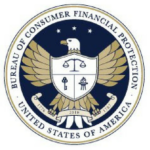While credit reporting may be a sizable headache for collection agencies, especially in light of the growing number of disputes being filed by individuals and their representatives, more and more clients are requiring agencies have the ability to report unpaid debts to the credit bureaus in order to be eligible to have accounts placed with them.
Credit reporting can also be a very valuable collection tool, shared a panel of experts who spoke last week about the topic during a webinar that was sponsored by Microbilt. A copy of the webinar recording can be accessed here:
While some clients will do their own reporting, in order to manage disputes filed by individuals, many clients are including credit reporting as a required component of submitting a proposal to win business, the panelists said.
“The clients see it as a big plus,” said LaDonna Bohling, a vice president with Contract Callers and one of the webinar’s panelists. “It’s a deal-breaker if you don’t report.” But, at the end of the day, Bohling acknowledged, it’s the collection agencies that are taking on the additional risks of being sued by reporting unpaid debts to one or more of the credit bureaus.
But at a time when collecting money is becoming more and more difficult, credit reporting can be a “valuable collection tool,” said Michelle Dove, the general counsel of I.C. System.
“As collections becomes more difficult, it can be a good tool,” Dove said.
There are many individuals who care about their credit score, and those are the people who will respond to an unpaid debt being reporting to one of the bureaus, said Chrissy Rioux, a senior vice president with Credit Solutions.
“We have a responsibility to our role in the overall economy,” Rioux said. “It’s important for us to do our part.”
Two of the panelists offered differing results when it came to assessing whether reporting to the bureaus lifted the payment or recovery rates on their portfolios. One agency, which largely collects medical debts, said that it recorded a 3% increase in payments when it conducted an analysis of whether reporting the debt led to a subsequent payment. Another agency, when it looked at a portfolio of telecom debts, said that reporting to the bureaus boosted the recovery rate by 40%.
The downside to reporting unpaid debts to the credit bureaus is the increased risk of lawsuits filed by individuals relating to disputes. Those risks can be mitigated, Bohling said, if an agency is able to put the proper policies and procedures in place.









